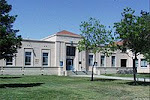

"Man, however, is always the same. And when so marked a difference
appears between two generations, it is certain that the solution
may be found in their respective circumstances. The principal
statesmen of the reign of Charles the Second were trained during
the civil war and the revolutions which followed it. Such a
period is eminently favourable to the growth of quick and active
talents. It forms a class of men, shrewd, vigilant, inventive; of
men whose dexterity triumphs over the most perplexing
combinations of circumstances, whose presaging instinct no sign
of the times can elude. But it is an unpropitious season for the
firm and masculine virtues. The statesman who enters on his
career at such a time, can form no permanent connections, can
make no accurate observations on the higher parts of political
science. Before he can attach himself to a party, it is
scattered. Before he can study the nature of a government, it is
overturned. The oath of abjuration comes close on the oath of
allegiance. The association which was subscribed yesterday
is burned by the hangman to-day. In the midst of the constant
eddy and change, self-preservation becomes the first object of
the adventurer. It is a task too hard for the strongest head to
keep itself from becoming giddy in the eternal whirl. Public
spirit is out of the question. A laxity of principle, without
which no public man can be eminent or even safe, becomes too
common to be scandalous; and the whole nation looks coolly
on instances of apostasy which would startle the foulest turncoat
of more settled times."
from Critical & Historical Essays
by Thomas Babington Macaulay





















No comments:
Post a Comment